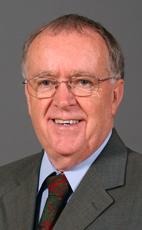Madam Speaker, I appreciate this opportunity to expand on a question that I have asked the Minister of Human Resources and Skills Development in the House on a number of occasions over the last couple of years.
We continue to get answers that are not satisfactory, which indicates that either the minister or the government does not really understand the depth and the breadth of poverty that exists in our country and does not understand that report after report has been delivered by reputable agencies studying these kinds of matters. These reports have been tabled in Ottawa for the federal government to see. Yet the government refuses to acknowledge there is a problem and work with others to do something about it.
A day before I asked that specific question, a report had been by Campaign 2000. It noted that poverty had a direct cost to health care, criminal justice, social services, lost productivity and lost opportunities in our country. The Food Banks of Canada report, which came out only a couple of years ago, indicated that the cost of poverty to the economy of Canada was upwards of $90 billion a year.
All I am asking the government to do is indicate to me, given that six provinces are already moving on their own anti-poverty strategies, what it proposes to do to fix this very glaring and obvious problem and take care of those who it has a fundamental responsibility for, those who are most at risk and marginalized in our communities and across our country.
We have had a further report in the last month or so from Food Banks of Canada called “HungerCount 2010”. The statistics it keeps of who comes in, how many times and who they may be show that, on all accounts, the numbers are up across the board. People are now having to turn to food banks to supplement their dietary needs. No longer are people getting the kind of assistance they need, whether it is through a job or some government program, to feed themselves and their children and to do it in an efficient fashion so they might take advantage of opportunities to better themselves.
We have just been through one of the most difficult recessions I have experienced in my lifetime. Before the recession 2008, we had a significant number of poor people. We have had an onslaught of poor people since then and there are no new programs to directly speak to the specific needs of that group of people. This group of people is growing.
In the middle of all that, we discovered that we now have hundreds of thousands of people, and a lot of them are new immigrants to our country living in places like Toronto, Vancouver and Montreal and cities across the country, who are working full-time, year-round, on minimum wage and who are still living in desperate poverty because there is not enough affordable housing available.
People who have looked at the question of poverty and who have taken the time to look at what we might do to make a huge difference in that area are calling for is a national housing strategy. The Standing Committee on Human Resources tabled a report with the government last June. We are expecting a response by the middle of March.
Could the parliamentary secretary tell us what might be in the government's response that would indicate it understands the depth and the breadth of the problem and will it actually do something about it?

